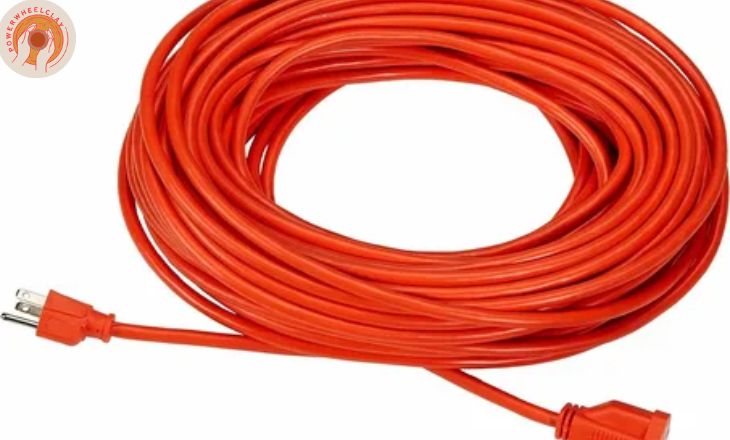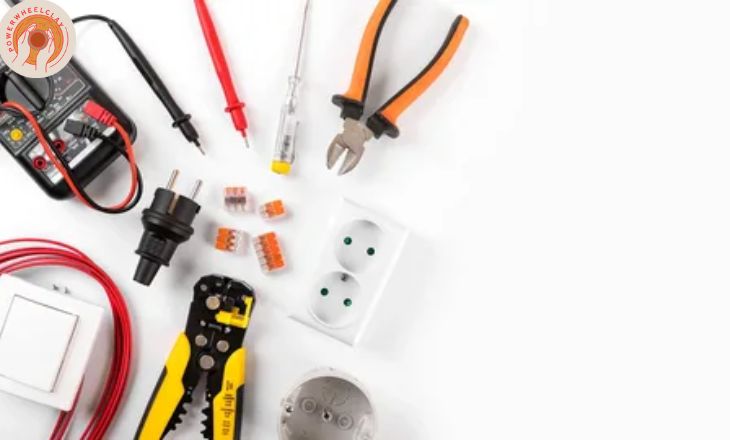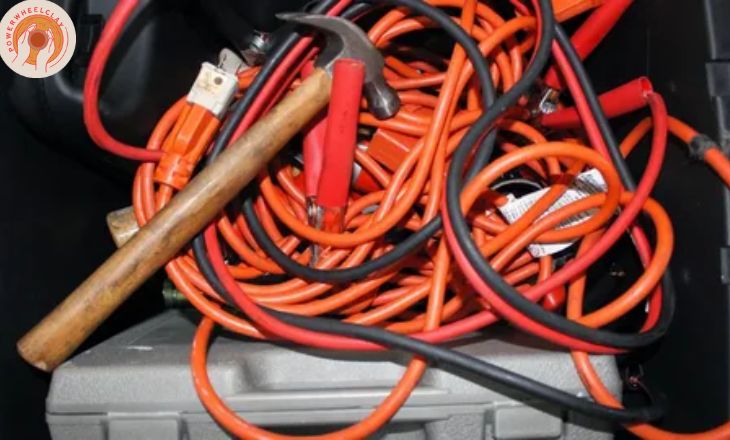Because of safety issues, Can I use an extension cord with a kiln? As kilns use a lot of power, using a power cord that is improper or broken might cause heat and perhaps cause a fire. Direct connection of the kiln to a specific power outlet capable of providing the necessary voltage and current is important.
Using an Extension Cord with a Kiln
Both benefits and beginner potters often carry an extension cord with their kilns. But, to guarantee efficiency and safety, it’s necessary to utilize the proper kind of extension cords. To avoid heating or electrical risks, use a heavy-duty, grounded extension cord that can handle the high wattage needed by a kiln. stay away from daisy-chaining several cords together since this may cause voltage drops and could harm your kiln.

Carefully consider the extension cord’s length and size when choosing one for your kiln. For your kiln to have steady electrical flow and to minimize power loss, you should use a thicker gauge and shorter cord.
Recall that utilizing an extension cord that is defective or incorrect can lead to major worries like electrical fires or breakdowns in the equipment in addition to affecting your kiln’s performance. Using a 220-volt extension cord with a kiln high-powered appliance can be risky.
Your Electrical Supply
The electrical supply industry changes as new inventions and technology appear quickly. How we produce and distribute electricity is changing, from solar panels to smart meters. The emergence of renewable energy sources, like solar and wind power, is one exciting development that is changing the traditional energy picture.

- voltage
Kilns usually require a high voltage to operate efficiently, and not all extension cords are made to handle such power demands. If you use an extension cord with a kiln, you should assess the electrical requirements of both the kiln and the cord. If the cord is too short to support the voltage required by your kiln, you run the risk of overheating, possible fire hazards, or damage to both the equipment and the cord.
it’s best to keep clear of using a connecting cord with a kiln whenever you may. If you are forced to use an extension cord because of distance or other factors, be that it is a heavy-duty cord that can handle the voltage and amperage your kiln requires.
- Amperage
When it comes to using an extension cord with a kiln, there are important factors to consider, such as the amperage of both the kiln and the extension cord. Kilns typically draw a significant amount of power, so using the wrong extension cord can lead to overheating and potential fire hazards. It’s advisable to always use an extension cord that is rated for at least the same amperage as your kiln to ensure safe and effective operation.
Not only may using a low-quality or inadequate extension cord with your kiln affect its performance, but it also presents a significant safety risk. Before connecting your extension cord to your kiln, make sure to check its amperage rating. If possible, use a heavy-duty cord made especially for high-power equipment.
- Phasing
While using an extension cable with a kiln can be a practical solution, it’s important to take electrical phasing into account to minimize any possible dangers. Because kilns typically need a lot of power, utilizing an extension cord that isn’t meant for the voltage and amperage requirements of the kiln might cause overheating or even electrical fires.
It is important to confirm that the extension cable being used is right for a specific kiln type by speaking with an electrician or the producer of the kiln. using an inadequate extension cord may result in phasing issues, where the voltages of different wires are not properly aligned.
Can I use an Extension Cord with a Kiln – Do’s and Don’ts
It is important to utilize the proper kind of extension cable with a kiln to meet the high wattage and voltage needs of the kiln. Choose a heavy-duty extension cord that is sufficiently lengthy and has an adequate thickness to avoid burning or overheating. you keep the cable functioning properly, make sure you periodically check it for wear or damage and keep clear of bending or coiling it strongly.

follow manufacturer guidelines for both your kiln and extension cord to ensure safe and effective operation, ultimately prolonging the lifespan of your equipment while prioritizing your safety precautions.
Installation of Electric Kilns
Electric kilns have revolutionized the world of ceramics, providing artists with a more efficient and convenient way to fire their creations. The installation of an electric kiln requires careful planning and attention to detail to ensure optimal functioning. One key consideration is the electrical requirements, as kilns typically draw a significant amount of power. It is important to work with a licensed electrician to properly install the necessary wiring and outlets for your kiln.
proper insulation around the kiln temperatures for firing pottery can help maintain consistent temperatures and improve energy efficiency during firing cycles. By taking these factors into account during the installation process, artists can set themselves up for success in their ceramic endeavors.
Final Thoughts
Safety should always be the top priority when working with equipment that requires high power consumption like a kiln. Always follow manufacturer recommendations and guidelines for electrical connections to ensure the safe and efficient operation of your kiln.
Conclusion
using an extension cord with a kiln can be risky due to the potential for overheating and fire hazards. While it may be tempting to extend the reach of your kiln with an extension cord, it is advisable to prioritize safety by following the manufacturer’s guidelines and using a dedicated outlet.
Investing in the proper electrical setup will not only protect your kiln but also ensure the safety of your space and yourself. Take the necessary precautions and avoid using extension cords to power your kiln.
FAQs
Can you use an extension cord with a pottery wheel?
You can use an extension cord with a pottery wheel as long as the cord is rated for the appropriate amperage and voltage required by the pottery wheel.
When should you not use an extension cord?
There are several situations in which you should avoid using an extension cord. Firstly, if the extension cord is damaged or frayed, it poses a safety hazard and should not be used. Using a damaged cord can increase the risk of electrical shocks or fires.
